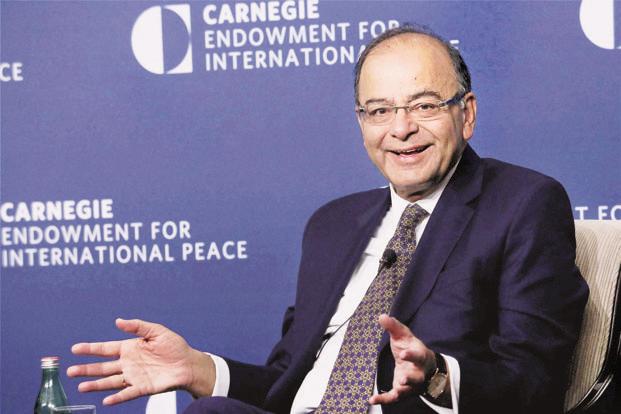
Washington: Buoyed by the forecast of a good monsoon this year, finance minister Arun Jaitley said that India’s economy could grow at a higher pace in the current fiscal as compared to previous years, led by growth in agriculture.
India is estimated to have grown at 7.6% in 2015-16. The government, in the economic survey in February, had projected India’s growth to be in the range of 7-7.75%, citing factors such as an uncertain monsoon and the slowdown in the global economy.
But the uncertainty around the monsoon reduced earlier this week after the India Meteorological Department forecast above-normal rains during the critical south-west monsoon.
Speaking at an event organized by the Carnegie Endowment for International Peace on Wednesday, Jaitley said that agriculture had been one of the main gaps in the Indian economy for the past two years on account of two consecutive years of drought.
“Last two years saw a very bad monsoon and the agricultural sector had suffered. This impacted the rural economy, which in turn affected the rural purchasing power, which in turn impacted overall growth in the economy,” he said.
“The 7-7.5% growth would have been significantly higher if not for the weak monsoons. The (monsoon) prediction seems to be much kinder this year and if that were to happen, we can significantly improve on our growth rates itself this year,” he said.
Agriculture is estimated to have grown at a slow pace of 1.1% despite a 23% shortfall in the monsoon forecast.
Speaking on the topic of steering India towards growth, Jaitley said that the country has managed to grow at a good pace despite adverse conditions such as a slowing global economy.
He said India has taken many steps to improve the ease of doing business for investors, adding that more steps still need to be taken to reduce the procedural requirements for business. “We are looking at how to remove procedural hurdles. This is a work in progress,” he said.
On the implementation of the goods and services tax, Jaitley said that the government is in talks with the opposition Congress party and is hopeful of a consensus at the earliest to ensure the passage of the Constitution amendment bill that is stuck in the Rajya Sabha.
Strong economic growth, comfortable price situation, low current account deficit and adherence to a fiscal recovery path has made India an outpost of opportunity for global investors, Jaitley said on the first day of his seven-day visit to the US.
He said that the current growth rate of 7.6% is not enough to support India’s requirement and the country has the potential to do better.
“One of the biggest areas of worry has been the declining exports. If hopefully with any of these variable factors—growth returning to the rest of the world, better Indian monsoon and continued favourable environment of oil prices—and the impetus of policy direction in India and if the reforms go on… our ability to do much better would be there,” Jaitley said.
Separately, India expressed concern over the hike in visa fee by the US, saying it is discriminatory and largely affects Indian information technology professionals.
During a bilateral meeting with US Trade Representative Michael Froman, Jaitley also underlined the need for an early conclusion of the Totalization Agreement, which would benefit Indians working in America.
Last year, the US Congress imposed a special fee of up to $4,500 on H-1B and L-1 visas—popular among Indian IT companies—to fund a 9/11 healthcare Act and biometric tracking system. While agreeing on the $1.1 trillion spending bill, congressional leaders decided to impose a special fee of $4,000 on certain categories of H-1B visas and $4,500 on L-1 visas.
Earlier, welcoming Jaitley, Carnegie president and former US deputy secretary of state William Burns said that India has a very important role to play globally, particularly in Asia.
“Two years after the BJP (Bharatiya Janata Party) came to power, there is change in India’s economic situation. Under the leadership of Prime Minister Modi and Jaitley, India today is the world’s fastest growing major economy,” Burns said, adding that inflation has moderated and that the government is committed to reforms.